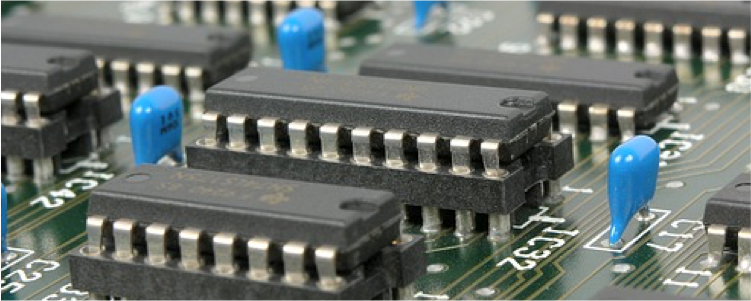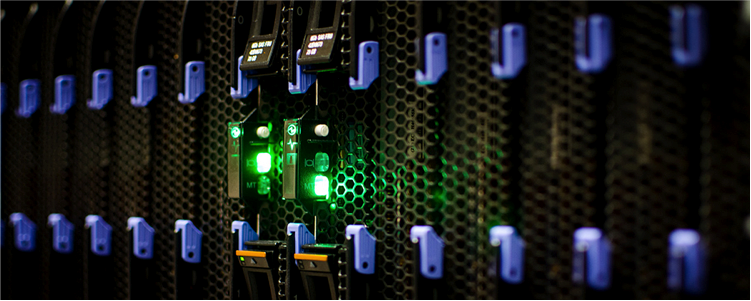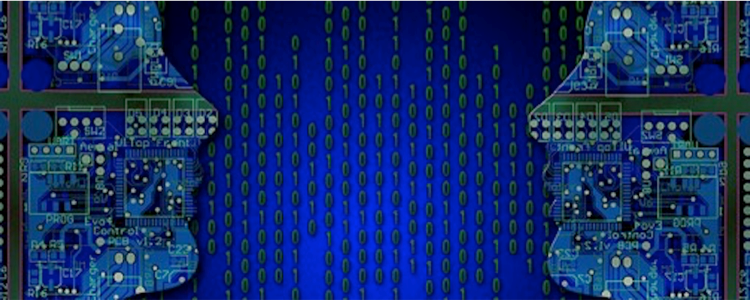Back to Information Technology Open CourseWare
Preview Online Program: NSC Cyber Technology Certificate Program
Audience: Instructional designers, Industry training and students
The NSC Cyber Technology Certificate Program maps to the Customer Service and Technical Support job category so that employers know exactly what knowledge, skills, and abilities program graduates have attained. It is a stackable academic certificate built on a one-year, 30-semester-credit model that combines rigorous academic experiences with hands-on projects and a skills-based capstone. Its coursework partially prepares students for industry-standard certification exams. The certificate comprises 12 courses, eight of which are mapped to third-party certification exams (indicated below in parentheses). All of the courses underwent a thorough review by industry subject matter experts.
Subject Matter Expert Review ![]()
SME Reviews: NSC Cyber Technology Programs
Program Guide ![]()
NSC Cyber Technology Program Guide
Courses In This Program
Personal Computer (PC) Hardware (CompTIA A+ 220-801 and 802)

PC Hardware is a study of the basic assembly, maintenance, and repair of microcomputer systems. This course consists of five units of 26 lessons plus two sessions of practice exams. Corresponding labs activities and written homework assignments are provided. Hardware-oriented topics covered include subcomponents, such as system board, video, memory, storage, multimedia, networking, and printers. The course will cover installation of expansion cards/devices and drivers for Windows operating systems. Upon successful completion of the course, the student will be partially prepared to take the CompTIA A+ 220-801 certification exam.
Preview Online Course: PC Hardware
Download Materials: Personal Computer (PC) Hardware (CompTIA A+ 220-801 and 802)
Personal Computer (PC) Software (CompTIA A+ 220-801-and 802)

PC Software is a study of Windows operating systems, security and mobile devices, and troubleshooting theory and application. Topics include installation and maintenance of Windows operating systems; implementation of security features on microcomputer systems and mobile devices; installation and configuration of PC operating systems; and configuration and troubleshooting techniques for mobile operating systems Android and Apple iOS. Upon successful completion of the course, the student will be partially prepared to take the CompTIA A+ 220-802 certification exam.
Preview Online Course: PC Software
Download Materials: Personal Computer (PC) Software (CompTIA A+ 220-801-and 802)
Network Essentials (CompTIA Network+)

Network Essentials is a study of the fundamental topics and concepts of networks and network technologies. The course consists of 15 lessons along with corresponding labs and class activities. Topics covered include introductory content on networking standards, models, and protocols; networking hardware; transmission methods and media; Local Area Networks (LAN); Wide-Area Networks (WAN); wireless; Voice over Internet Protocol (VoIP); security; and network management issues. The course will prepare students for subsequent Cisco courses and partially prepare students to take the CompTIA Network+ certification exam.
Preview Online Course: Network Essentials
Download Materials: Network Essentials (CompTIA Network+)
Security Fundamentals (CompTIA Security+)

Security Fundamentals is a study of the information security field. This course consists of 15 lessons along with corresponding labs and/or class activities. Topics covered include threats and attacks, network security, wireless network security, basic and advanced cryptography, business continuity, and risk management. Upon successful completion of the course, students will be partially prepared to take the CompTIA Security+ certification exam.
Preview Online Course: Security Fundamentals
View & Download Materials: Security Fundamentals (CompTIA Security+)
Note: The four Cisco courses below are part of the Cisco Networking Academy Program and are designed to introduce students to fundamental networking concepts and technologies. In order to be a Cisco Networking Academy, Cisco requires educational institutions to provide a classroom with lab equipment, computers with Internet access, sufficient network connections and bandwidth, and a trained Cisco instructor. Please see www.cisco.com for more information on the requirements for an institution to become a Cisco Networking Academy.
Cisco 1: Network Fundamentals (Cisco CCNA)

Introduction to Networks is a study of the fundamentals of networking and information systems. Students will learn both the practical and conceptual skills that build the foundation for understanding basic networking and the parallels between human and network communication. The course introduces the OSI and TCP/IP models that are used to plan and implement networks and the layered approach to networks. Students then will examine the OSI and TCP/IP layers in detail to understand their functions and services and be able to identify the types of media used to carry data across the network. Finally, at the conclusion of the course students will be able to build simple LANs, perform basic configurations for routers and switches, and implement IP addressing schemes.
Preview Online Course: Cisco 1: Introduction to Networks
Download Materials: Cisco 1: Network Fundamentals (Cisco CCNA)
Cisco 2: Routing Protocols and Concepts (Cisco CCNA)

Routing and Switching Essentials is a study of the architecture, components, and operations of routers and switches in a small network. Students will learn how to configure a router and a switch for basic functionality. At the conclusion of this course, students will be able to configure and troubleshoot routers and switches and resolve common issues with RIPv1, RIPv2, single-area and multi-area OSPF, virtual LANs, and inter-VLAN routing in both IPv4 and IPv6 networks.
Preview Online Course: Cisco 2: Routing and Switching Essentials
Download Materials: Cisco 2: Routing Protocols and Concepts (Cisco CCNA)
Cisco 3: LAN Switching and Wireless (Cisco CCNA)

This course describes the architecture, components, and operations of routers and switches in larger and more complex networks. Students learn how to configure routers and switches for advanced functionality. By the end of this course, students will be able to configure and troubleshoot routers and switches, and they will resolve common issues with OSPF, EIGRP, and STP in both IPv4 and IPv6 networks. Students will also develop the knowledge and skills needed to implement a WLAN in a small-to-medium network. This course addresses the core material of the CompTIA CCNA objectives. Outside lab time is required.
Preview Online Course: Cisco 3: Scaling Networks
Download Materials: Cisco 3: LAN Switching and Wireless (Cisco CCNA)
Cisco 4: WAN Implementation and Support (Cisco CCNA)

Connecting Networks focuses on accessing wide area networks (WAN). The goal is to develop an understanding of various WAN technologies to connect small- to medium-sized business networks. The course introduces WAN converged applications and quality of service (QoS), and focuses on WAN technologies including PPP, Frame Relay, and broadband links. WAN security concepts are discussed in detail, including types of threats, how to analyze network vulnerabilities, general methods for mitigating common security threats, and types of security appliances and applications. The course explains the principles of traffic control and access control lists (ACLs) and describes how to implement IP addressing services for an Enterprise network, including how to configure NAT and DHCP. IPv6 addressing concepts are also discussed. During the course, students learn how to use Cisco Router and Security Device Manager (SDM) to secure a router and implement IP addressing services. Finally, students learn how to detect, troubleshoot, and correct common Enterprise network implementation issues.
Preview Online Course: Cisco 4: Connecting Networks
Download Materials: Cisco 4: WAN Implementation and Support (Cisco CCNA)
Core Skills for Computing Professionals 1

Core Skills for Computing Professionals 1 is a study of skills and knowledge required for technical positions within the computing industry. This course consists of 11 lessons. Topics covered include mathematics, communication, and critical thinking skills essential to academic and workplace success. Core Skills 1 incorporates Unit 1: Mathematics of the NSC STEM Readiness course, which is available in OLI as described in the Introduction. The mathematics content is required by students after completion of the accompanying placement test. There is no ordered delivery of the mathematics content modules because students will self-pace based on assessment.
Preview Online Course: Core Skills for Computing Professionals 1
Download Materials: Core Skills for Computing Professionals 1
Core Skills for Computing Professionals 2

Core Skills for Computing Professionals 2 is a study of skills and knowledge required for technical positions within the computing industry. This course consists of 7 lessons. Topics covered include communication and critical thinking skills essential to academic and workplace success. Core Skills 2 incorporates Unit 2: Workplace Communications and Critical Thinking of the NSC STEM Readiness course, available in Platform+ from OLI, the Open Learning Initiative at Carnegie-Mellon University. OLI access and instructions will be provided.
Preview Online Course: Core Skills for Computing Professionals 2
Download Materials: Core Skills for Computing Professionals 2
Core Skills for Computing Professionals 3

Core Skills for Computing Professionals 3 is a study of the professional skills and knowledge required for technical positions within the computing industry. This course consists of five lessons. Topics covered include customer service, confidentiality, organizational skills, teamwork, the job search process, and how to convey a professional image.
Preview Online Course: Core Skills for Computing Professionals 3
View & Download Materials: Core Skills for Computing Professionals 3
Cyber Capstone

The Cyber Capstone course consists of five lessons along with corresponding labs and class activities. Upon successful completion of this course, students will have demonstrated that they can identify the hardware and software required to build a personal computer and then build that computer. They also will have demonstrated that they can design and build a secure network that uses both wired and wireless connections. Lastly, they will have participated in both individual and group presentations of design solutions.
Preview Online Course: Capstone
Download Materials: Cyber Capstone
